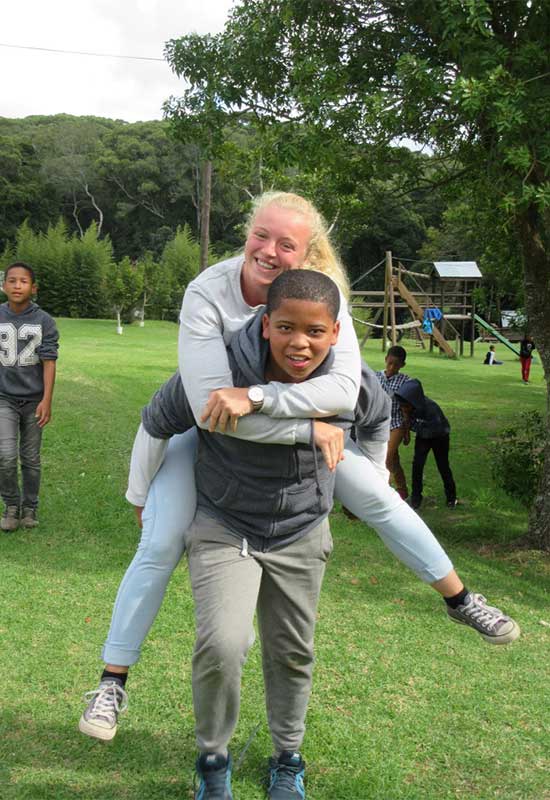
Social Programme
Born in Africa’s social programme aims at developing strong social and emotional skills amongst the children in the Born in Africa programme, so they become confident well-rounded youngsters who are able to take their future opportunities at hand.
Background
The Bitou area, situated along the Garden Route in the Western Cape, is perceived to be fabulously wealthy, but in reality, there is a huge disparity between wealthy and the impoverished.
Tens of thousands of people struggle in abject poverty, and most families live in townships in small 2 -3 roomed homes. These are often overcrowded with up to 10 people sharing a small room. Social conditions are impacted by unemployment levels exceeding 30%, combined with a historic abuse of alcohol. The children are exposed to alcohol at a very young age and are therefore at a high risk of dropping out of school and being involved in crime. Born in Africa works mainly in Afrikaans speaking coloured communities who have been marginalised over time, battling to find their identity.
Challenges
The social assistance to the Born in Africa children is quintessential to support their academic curriculum. Without it, they would struggle even more to be motivated to attend school, to do homework, write exams and envision a future career whereby good school results are mandatory. In the area where Born in Africa is operating, there is an enormous deficit in social workers. Therefore, Born in Africa needs to train and debrief their staff on a regular basis in order to be able to respond to the huge social problems the children face. Organisations who deal with family problems are overburdened and private counselling is not affordable, so the responsibility to guide these children is therefore partly shifted towards the organisation.





